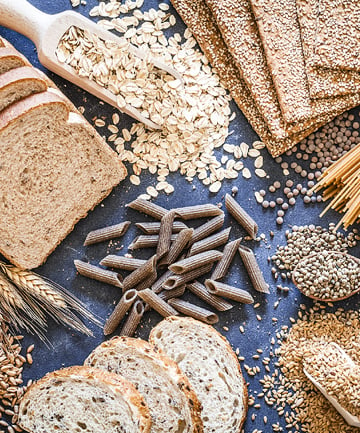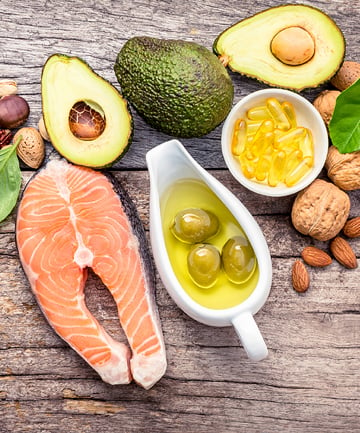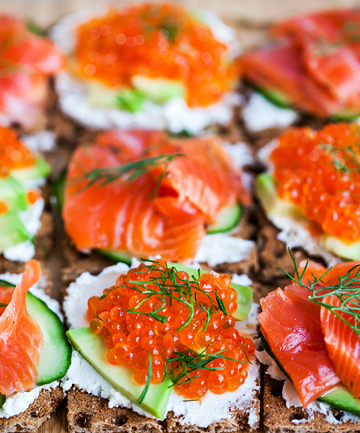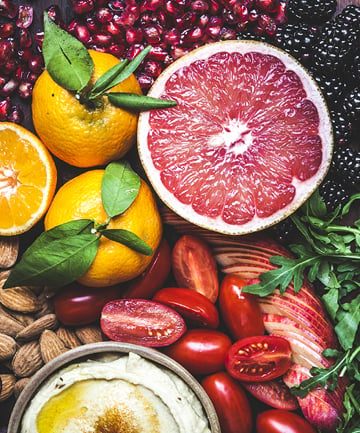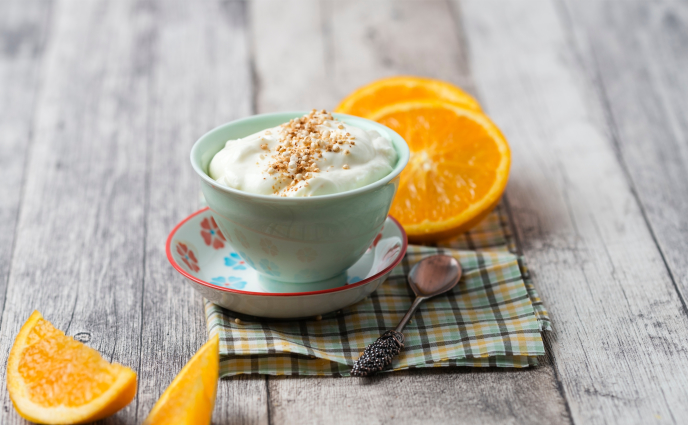According to Quartz, nearly one in five US workers experience debilitating anxiety or depression — and the younger you are, the worse it gets. Thirty percent of respondents who are in the millennial or Gen Z group responded to a survey saying that they experienced anxiety to point where it disrupts work "all the time" or "often."
The number in itself is depressing.
But there are ways to help cope with your anxiety and depression, including adjusting your diet. Of course, it's not a cure-all and if you are feeling constantly anxious or depressed, we recommend that you see a licensed professional or go to your doctor for help. As a person who has both generalized anxiety disorder and major depressive disorder, I know that medication and therapy is there for a reason — and if you can get help in any form, please do try to do so.
Still, you can try to eat yourself (a little) happier: I spoke to Nikki Ostrower, founder and nutritionist at NAO Wellness, to get her thoughts on what she calls "good mood foods" and she had lots of great tips. Keep reading to see her top suggestions.
Image via Imaxtree
"A complex carbohydrate snack, such as fruit or brown rice will provide a very soothing effect to the brain, and help to relieve a dark mood," says Ostrower. She says whole grains are rich in complex carbohydrates, which promote stable blood sugar levels, and also promote the production of serotonin (aka the chemicals in your brain that make you feel good and calm and not like the world is about to end).
But also be careful what you pair your whole grains with, since Ostrower warns that "when combined with protein or fat, complex carbs will be stabilizing, but will not provide as much soothing power."
Image via fcafotodigital/E+/Getty
Crucial for stabilizing blood sugar levels, healthy fats provide a sense of calming satiety, which helps to eliminate cravings, says Ostrower. "Olive oil, butter, and coconut oil are best choices for cooking, as these help to maintain proper fatty acid balance," she says.
And don't forget about those omega 3s: "Omega 3 fats are essential for boosting energy, learning ability, problem solving skills, and memory skills," says Ostrower. She also points out that they're also responsible for proper communication between brain cells.
Ostrower explains that omega 3 depletion can cause depression, ADHD, post-partum depression, Alzheimers, and more. She recommends eating foods like wild salmon, sardines, omega 3 eggs, tuna, mackerel, halibut, and anchovies to help stave off any depletion.
She also suggests keeping an eye out for EPA and DHA levels: "Look for supplements which list EPA and DHA levels," she says. "Deva makes a vegan DHA supplement derived from algae. Flax oil supplements provide ALA fatty acids, which need to further broken down into EPA and DHA."
Image via Seksak Kerdkanno/500px/500Px Plus/Getty
These are foods like wild fish, organic meats, eggs, and dairy. They are rich in tyrosine, the amino acid which is the building block of dopamine. "Calcium in dairy helps improve the function of nerves, and also acts as a relaxant which eases anxiety," says Ostrower, who adds that egg yolks are also good for memory since they are rich in choline.
Image via Ekaterina Smirnova/Moment/Getty
You knew this one was gonna come up — but that's because it's true. You actually have to eat fruits and vegetables as part of a normal healthy diet. Why? Well, Ostrower says that you need the fiber it provides to clean out your insides and make you feel better again.
"Vegetables and fruits are high in both insoluble and soluble fiber. Insoluble fiber helps to cleanse the intestines by binding with and carrying out waste, fat and toxins. This cleansing process is crucial for efficient digestion and facilitates both weight loss and nutrient absorption," she says.
"Colorful fruits and vegetables also contain high levels of phyto-nutrients, antioxidants, vitamins, and minerals which aid in the production of anti-depressant neurotransmitters. Antioxidants help to protect cells against free radicals," says Ostrower. "In addition, these nutrients help build immunity, counteract cell degeneration, reduce inflammation, and increase brain function. Fruits and vegetables also help to alkalize the blood, increasing energy."
So, basically, eating fruits and vegetables will help clean up your insides, make you feel better, improve your memory and increase your energy? Sounds like a pretty good deal to us.
Image via Enrique Díaz/7cero/Moment/Getty



